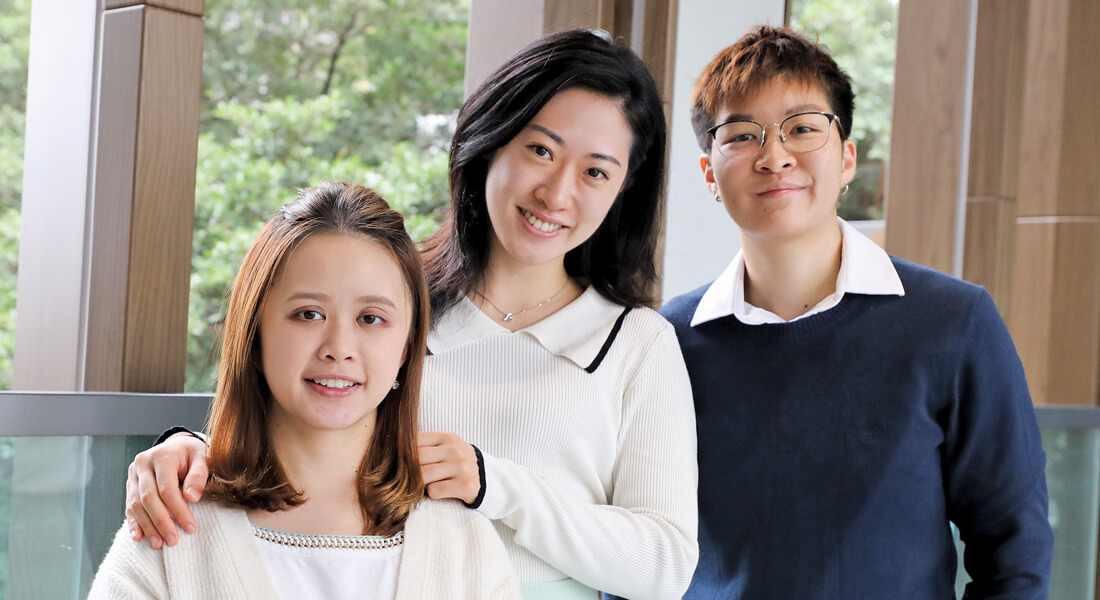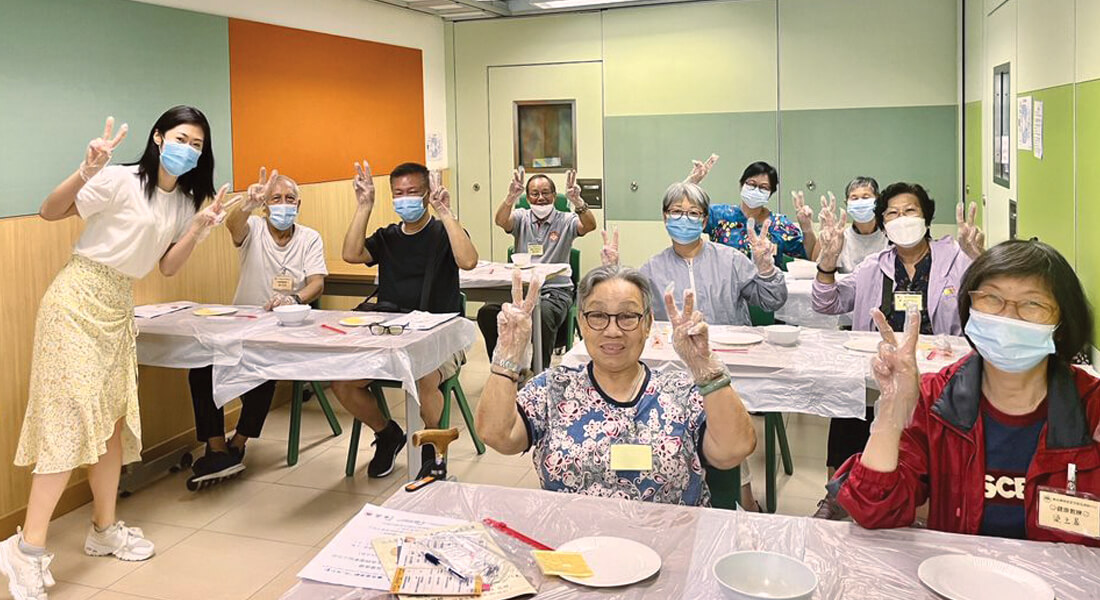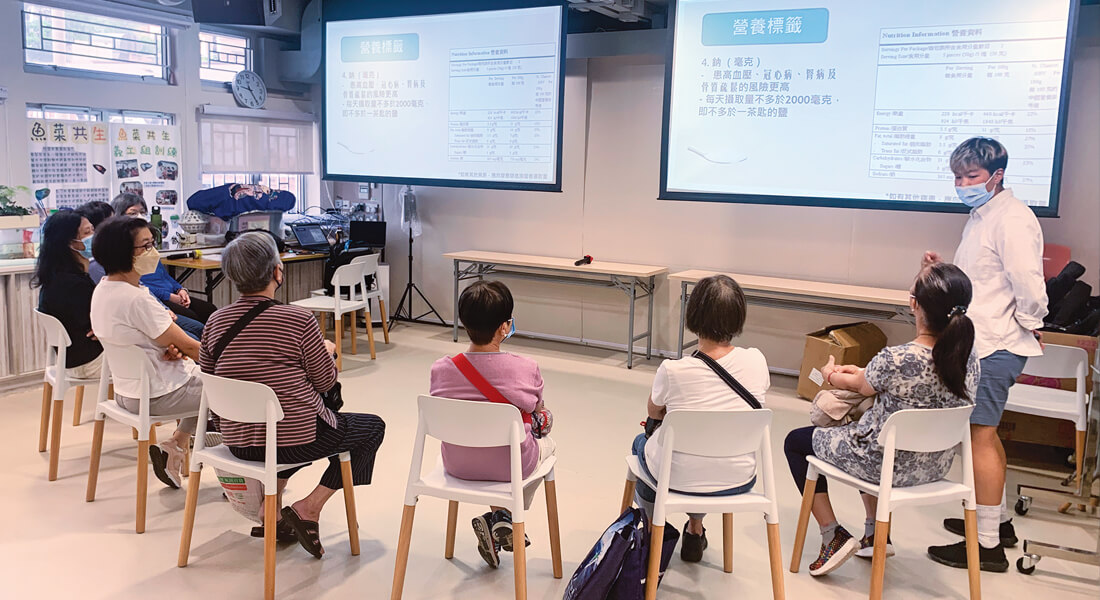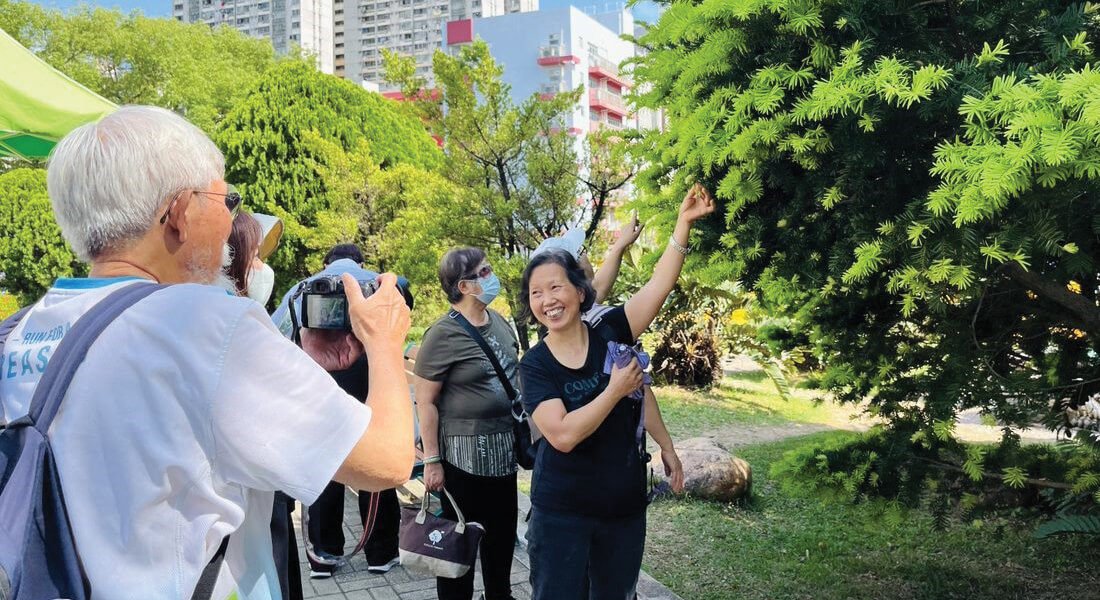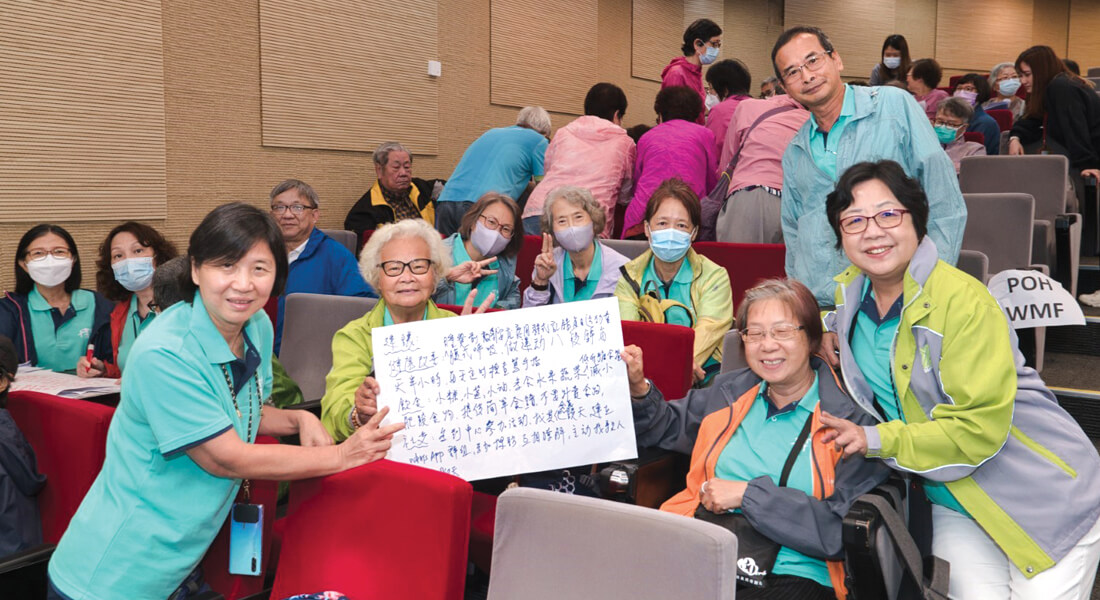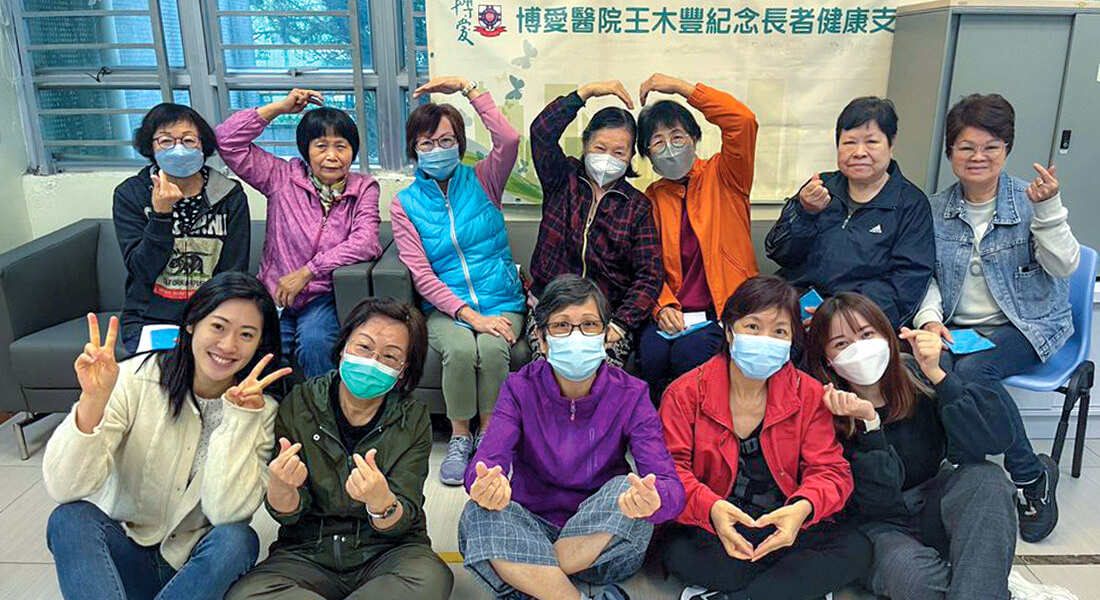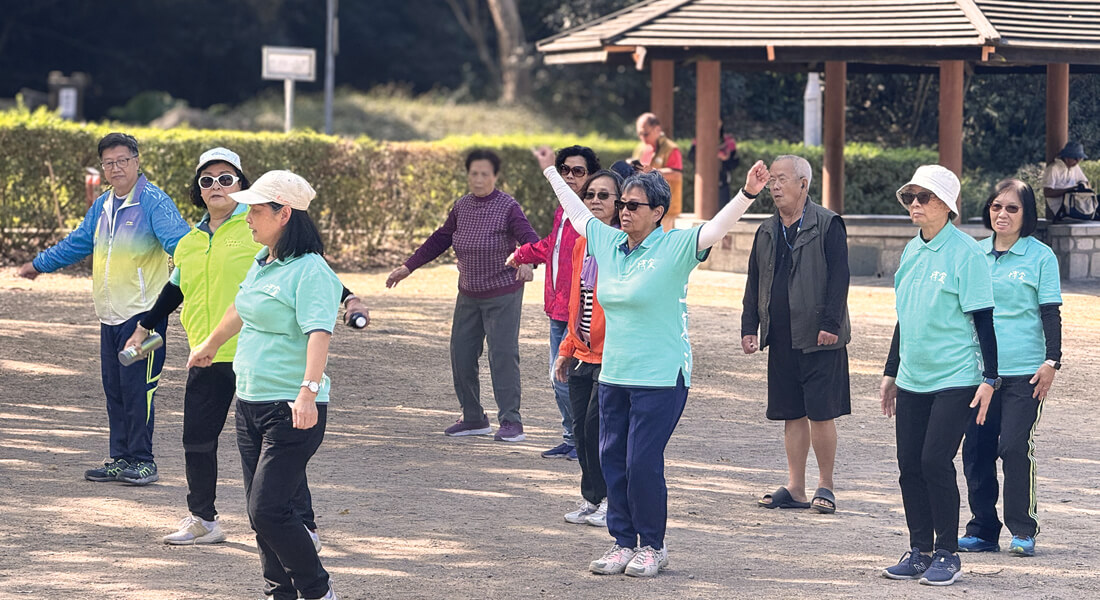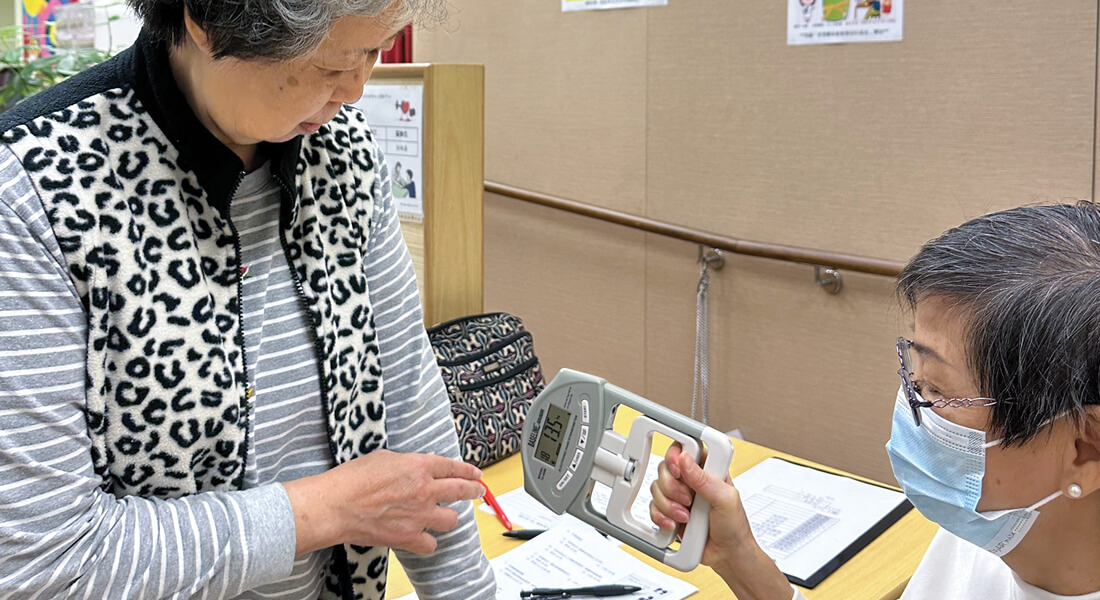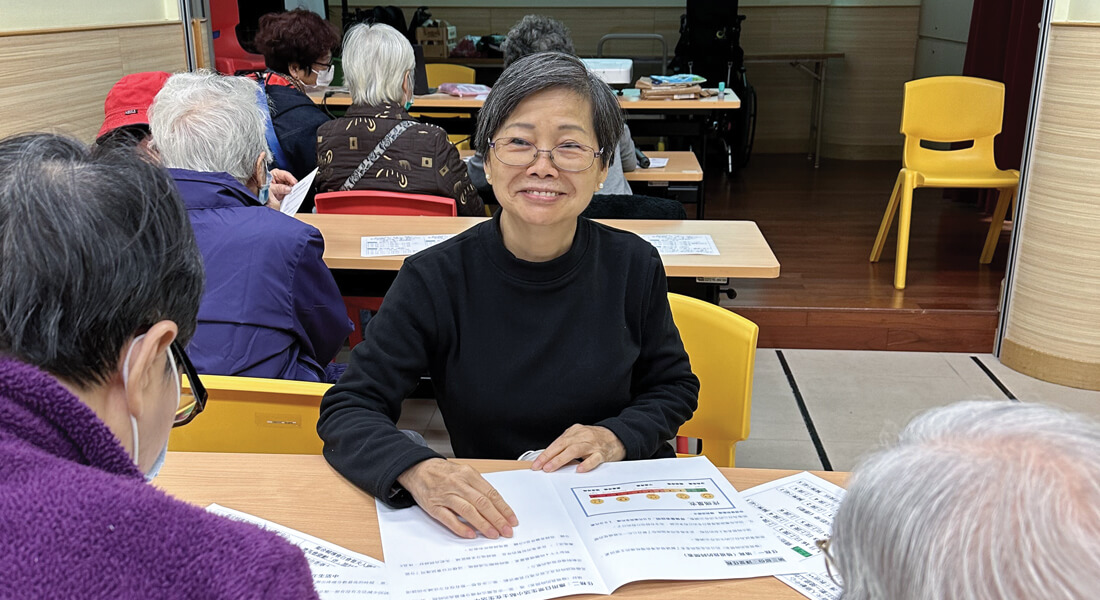Nursing Graduates Engage in Healthy Ageing Promotion
Rico Lam Ying-tung | Bachelor of Nursing (Full-time) graduate (N20)
Betty Lin Ka-ying | Bachelor of Nursing (Full-time) graduate (N20) | Year 2 Master of Psychological Medicine (Psychosis Studies) student
Joey Wong Chung-chi | Bachelor of Nursing (Full-time) graduate (N21) | Year 1 Master of Public Health student
As nursing graduates from HKU, we have great enthusiasm and dedication to promote population health according to global strategic directions. As population ageing has continued to increase in recent years, there has been a pressing need for a responsive primary care system to optimise the functional capabilities and holistic well-being of people in their golden years. The nursing profession is a major stakeholder in this healthcare priority and we are very committed to making significant contributions.
The Jockey Club Pathway to Healthy Ageing (JC Path-HA) is a new initiative pioneered by HKU in 2022 in response to the United Nations Decade of Healthy Ageing 2021-2030. It aims to develop a sustainable health-social collaborative care model to optimise the functional capacity of older adults in Hong Kong. Being able to join the JC Path-HA nursing team has not only meant we can engage in the global healthy ageing movement, but also enjoy ample opportunities to apply the competencies and skills we acquired in the Bachelor of Nursing programme to advance the care of the aged in our society.
Our contributions have included helping to pioneer territory-wide health screening based on the World Health Organization Integrated Care for Older People (WHO-ICOPE) model in seven districts in Hong Kong, which broadened our understanding of the care needs of Hong Kong’s seniors. Following the JC Path-HA protocol, we adopted a case management approach to develop person-centred care to optimise the functional status of our senior clients and support lifestyle modifications through goal-setting and empowerment. We also collaborated with the social care sectors of several flagship NGOs in rolling out innovative health education activities to support their goal attainments.
The WHO-ICOPE model also made us more aware of the complexity of health problems and challenges encountered by the older adults. Functional deficits in the physical, psychological and cognitive domains are interacting with one another to affect their well-being. Multi-morbidity, suboptimal sensory function, living alone and inadequate health literacy are common among this age cohort, which reinforces their need for proactive primary care to enhance their health management.
We were very glad that the JC Path-HA programme provided us with the autonomy to develop a health promotion portfolio for each client. We developed evidence-based personalised care using the critical pathway of the WHO-ICOPE framework to help clients ameliorate health risks, manage their geriatric symptoms and optimise their functional capacity. Based on feedback, we could see that the healthcare support from our team has meant a lot to the clients. They had a very positive health orientation and were very motivated to learn how to improve their health through lifestyle interventions. We also partnered with social workers and trained volunteers to provide health promotion workshops, case management meetings and audio health broadcasts to support and promote health goal attainment.
Our experience in the JC Path-HA programme has made us realise that it is imperative to advance the existing community aged care service in Hong Kong and to develop more proactive strategies for healthy ageing promotion. Optimising functional capability is crucial not only for ‘adding life to years’, but also buffering the health and social care burden in the community. While the UN strategy on healthy ageing offers an important blueprint to guide care innovation development, it is also important at the local level to build capacity and engage in health-social collaboration on the affordability, accessibility and sustainability of advanced care services. In fact, given the high level of health orientation among our seniors, developing their capacity for self-care would be an important strategy for health optimisation.
As nursing graduates from HKU, we hope to contribute to the promotion of population health at the local and global scales. Internationally, we are very committed to sharing our experience with stakeholders who are promoting healthy ageing in other countries and to consolidating collaborative efforts to feedback to the UN Decade of Healthy Ageing. Locally, we are pleased that nurses are important professional stakeholders in the current development of primary care health in Hong Kong. We are ready to translate our experience and insights from the JC Path-HA programme to promote the wellness of all.

